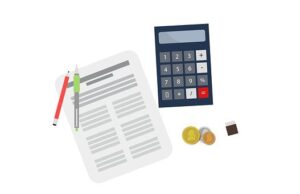
What are the advantages of a limited company? In our last article, we discussed the merits of setting up as a sole trader. This is certainly the most popular way of running a business when you start-up. However, once your company has been trading for a while and is growing, it may make more sense to set up as a private limited company. Setting up a limited company is fairly straightforward. However, it is important that you understand your legal situation regarding the financial arrangements you need to put in place and the other responsibilities that a limited company entails. In the latest article from team4, we look at the definition of a limited company, why you should set one up and the main advantages.
What is a limited company?
A limited company is a business structure that is a separate legal and financial entity from the person or people running it. The company has limited liability, which means if the company fails or is sued you are only liable for the face value of your share in the business. Beyond that your personal assets are protected.
A limited company is a company limited by shares or limited by guarantee.
Limited by shares are usually businesses that make a profit. This means the company:
- Legally separate from the people who run it
- Has separate finances from your personal ones
- Has shares and shareholders
- Can keep any profits it makes after paying tax
Limited by guarantee companies are usually ‘not for profit’. This means the company:
- Is legally separate from the people who run it
- Has separate finances from your personal ones
- Has guarantors and a ‘guaranteed amount’
- Invests profits it makes back into the company
Private and Public limited companies
There are two types of limited companies in the UK. These are namely private and public. In general, private companies are smaller with a few shareholders, whereas public companies tend to be larger and have shares that can be bought and sold.

Key points about a limited company:
- Separate entity
- One or more directors
- Own bank account
- Can be bought or sold in the form of shares
- Must be registered at Companies House
- Limited liability
Benefits of setting up a business as a limited company
- In most cases, your overall tax burden as an owner or director will be lower than a sole trader. Limited companies pay corporation tax on their profits, the rate of which is currently between 19% and 25% dependent on the profit of the business.
- It is a separate legal entity. The ownership of assets, a business bank account, and any involvement with contracts etc. is company business and separate from the interest of the company shareholders.
- You will have limited liability. This means that your liability for any financial losses incurred by your business is limited. You will not be liable to pay any business debts personally.
- Often, it creates a stronger brand and a more professional image. You may find that larger companies you want to deal with are more inclined to deal with incorporated businesses rather than sole traders.
- As you have to register your company with Companies House, the company name is legally protected. Your name cannot be used by any other business. This is in comparison with a sole trader whereby a company could trade under the same name as you, with little you can do about it.
- You may find it easier to secure business finance.
- As a limited company, you can issue shares. You then can sell shares within your company or transfer ownership of shares. The shareholders agreement will outline your responsibilities and this will also describe how any conflicts arising can be addressed.
- It can also be easier to sell or transfer ownership of your company, should you want to sell it in the future. You can sell everything tied up in your business, such as equipment and clients, whereas with being a sole trader, many elements of your business are tied up to your specific identity.

The disadvantages of a limited company
To give a fair picture, it is also important to be aware of the disadvantages of a limited company. These can include more paperwork and compliance. You will need to file annual accounts and hold annual general meetings. These can not only be costly, but also time consuming. A limited company may potentially be more expensive to set up as you will need professional advice and assistance.
How can team4 help you with setting up a limited company?
The main benefits of setting up your business as a limited company include limited liability, tax advantages and increased credibility. In most cases, setting up a limited company isn’t expensive or difficult. If you feel that the advantages we have described in our latest article would suit your business or if you are considering outsourcing your accounts, please contact team4. Call team4 on 01825 763378 or email info@team4bookkeeping.co.uk
We are based in East Sussex and have clients nationwide. Please contact team4 to find out how we can help you.







